Gerald M. Feierstein
Distinguished Sr. Fellow on U.S. Diplomacy; Director, Arabian Peninsula Affairs
- The State Department’s top official for MENA is on a two-week tour of the region, visiting Tunisia, Israel and Palestine, Jordan, and Iraq.
- Assistant Secretary Leaf’s trip included several current hotspots, with an eye toward reasserting U.S. leadership and calming troubled waters.
U.S. Assistant Secretary of State Barbara Leaf’s trip to North Africa and the Middle East, which began on Aug. 29, included several of the current hotspots in her area of responsibility, with an eye toward reasserting U.S. leadership and calming troubled waters.
The regional tour kicked off in Tunisia, where, according to the State Department announcement, Leaf planned to engage Tunisian officials and experts on steps needed to improve the political and economic environment in the country as well as to review mutual efforts to address the continued civil conflict in neighboring Libya. But her visit notably came on the heels of Tunisia expressing anger over recent comments by Secretaries Antony Blinken and Lloyd Austin as well as the U.S. ambassadorial nominee for Tunisia, Joey Hood, who collectively flagged Washington’s concerns about the North African state’s drift away from its promise of democratization. The U.S. officials’ remarks were seen as especially critical of the leadership of President Kais Saied.
In Israel and Palestine (Sept. 1-3), Leaf’s visit was aimed at heading off a Palestinian push to become a full member of the United Nations that President Mahmoud Abbas is expected to launch during his travel to New York for the opening of the U.N. General Assembly later in September. The Palestinian effort, which everyone expects to fail, comes in response to their disappointment over the results of President Joe Biden’s July stop in Israel and Palestine, which brought no new U.S. initiatives to change the current dynamics in the relationship between the Israelis and Palestinians. Leaf was expected to press Israel to implement some of the measures it had agreed to during the Biden visit, including easing travel restrictions on Palestinians and allowing the installation of 4G internet infrastructure in the Palestinian territories. But with the Israelis in the midst of another election cycle, the caretaker government will be reluctant to take steps that could complicate its electoral prospects. The announced completion, on Sept. 5, of the Israeli military investigation into the May 11 shooting death of noted Palestinian-American journalist Shireen Abu Akleh is unlikely to improve the atmosphere between the two sides. While Israel acknowledged that she was likely killed by Israeli gunfire, the just-released report termed the shooting “accidental”; whereas, the Palestinians believe Abu Akleh was the victim of a targeted assassination.
After a brief visit to Jordan (Sept. 3-4) to review the implementation of the new, seven-year, $10.15 billion Memorandum of Understanding on Strategic Partnership, Leaf made her last (initially unplanned) stop in Iraq. There, she told the Iraq News Agency that the country’s political situation is “on the verge of collapse.” Her visit follows a telephone call between President Biden and Prime Minister Mustafa al-Kadhimi last week, in which the U.S. leader reiterated Washington’s support for the Kadhimi government and a “sovereign and independent Iraq.” Leaf, in turn, stressed the importance of resolving Iraq’s current political confrontation through dialogue and negotiation and emphasized that the U.S. is engaged with all of the Iraqi political parties to encourage dialogue. After her meetings in Baghdad, Leaf traveled to Erbil, where she will remain until the end of the week.
Latest News
-
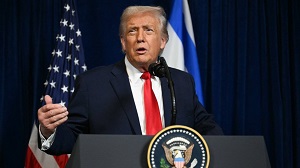 Trump says 'hell to pay' if Hamas fails to disarm in short period
Trump says 'hell to pay' if Hamas fails to disarm in short period
-
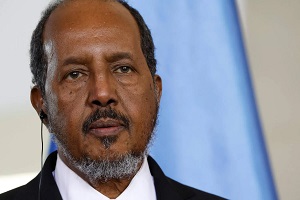 Somali President to Visit Türkiye After Israeli Recognition of Somaliland
Somali President to Visit Türkiye After Israeli Recognition of Somaliland
-
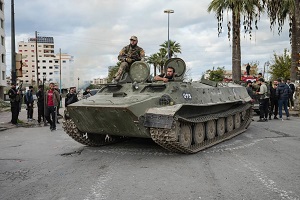 Syrian Army Enters Latakia, Tartus after Attacks by Regime Remnants
Syrian Army Enters Latakia, Tartus after Attacks by Regime Remnants
-
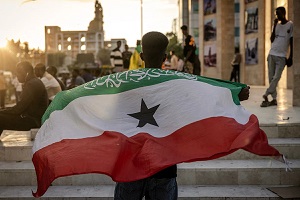 Jordan, Arab, Islamic countries reject Israel’s recognition of Somaliland
Jordan, Arab, Islamic countries reject Israel’s recognition of Somaliland
-
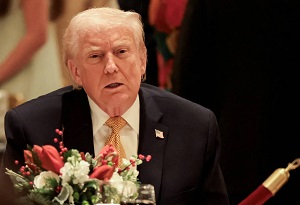 Trump Says Had 'Productive' Call with Putin Ahead of Zelensky Meeting
Trump Says Had 'Productive' Call with Putin Ahead of Zelensky Meeting